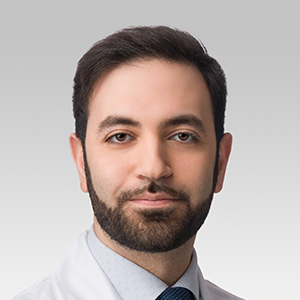How Is Alzheimer’s Disease Diagnosed?
And What Treatment Options Are There?
Updated October 2024
While the terms Alzheimer’s disease and dementia are often used interchangeably, the two conditions are not the same. Both share symptoms like:
- Memory loss
- Behavioral changes
- Language difficulties or disorientation that affect a person’s ability to function in daily life.
However, Alzheimer’s disease refers to a specific brain pathology (disease process), explains Malik Nassan, MD, behavioral neurologist at Northwestern Medicine Neurology Orland Park.
What is Alzheimer’s Disease?
Alzheimer’s disease is characterized by abnormal proteins in the brain called amyloid and tau. Whereas dementia symptoms may occur without abnormal proteins present in the brain.
The specific locations of these proteins and the correlated neurodegeneration (when nervous system cells stop working or die) in the brain determine the patient’s symptoms. For example, if there are increased amounts of amyloid and tau in the area of the brain responsible for speech, then a patient will have language difficulties.
These abnormal proteins may accumulate in the brain up to 15 years before symptoms develop, he says, and the first sign of Alzheimer’s disease is usually short-term memory loss.
Diagnosing Alzheimer’s Disease Earlier
Fortunately, physicians now have access to technologies that make it easier to diagnose Alzheimer’s disease at an earlier stage:
- Positron emission tomography (PET) scans can literally “light up” amyloid proteins in the brain or show abnormal brain function.
- New blood tests can now diagnose Alzheimer’s disease with reasonable accuracy.
- Lumbar punctures that analyzes a patient’s cerebrospinal fluid for the presence of amyloid and tau proteins remain the most definitive test.
Alzheimer’s disease tends to be associated with older adults, but it can strike younger people too. “An Alzheimer’s diagnosis before age 65 is considered ‘early-onset,’” says Dr. Nassan. “Those who develop it may have a genetic cause leading to more advanced brain pathology and a faster progression of the disease.”
Treatment Options: Hope for Those With Alzheimer’s
Although it is difficult to receive an Alzheimer’s disease diagnosis, patients today have more reasons for hope than ever before. Several medications are available to slow down the progression of disease symptoms.
Alzheimer’s diagnosis does not mean an immediate loss of independence. While there are no therapies to reverse or stop Alzheimer’s disease — it is a progressive neurodegenerative disease — its earliest symptoms don’t yet interfere with daily living. “We don’t want to take away individuals’ independence,” says Dr. Nassan. “We want to make sure they have safety nets in place ahead of time.”
Living Well with Alzheimer’s
While there is no definitive cause or cure yet, researchers are making great strides in understanding and treating Alzheimer’s disease. Clinical trials play a major role in these advancements. Dr. Nassan recommends:
- Staying physically active
- Following a healthy diet, like the Mediterranean diet
- Engaging in social and mental activities
- Participating in mind-stimulating games and creative pursuits
These lifestyle factors can play a role in managing the disease.
Learn when memory loss is a problem and when to get evaluated.






